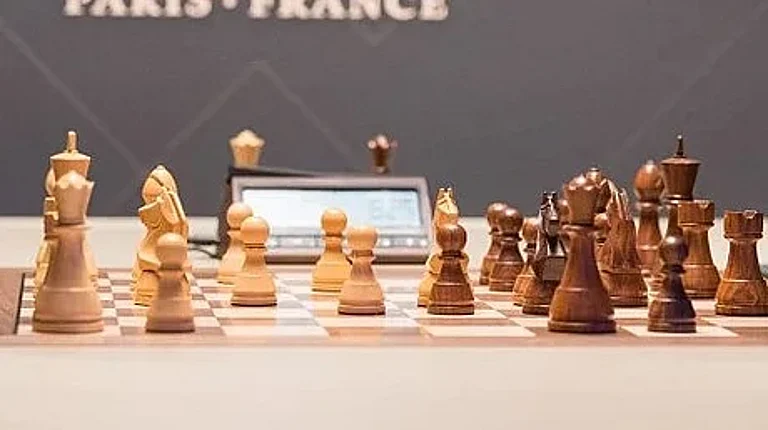Magnus Carlsen provided live commentary during the match
The tournament featured eight top LLMs on Google’s Kaggle platform
The event represents a significant evolution in AI evaluation methods
OpenAI Vs Grok, AI Chess Final: Sam Altman And Elon Musk Renewed Rivalry At Bot Tournament - Check Who Won
Five-time world chess champion Magnus Carlsen was among the ones to react to the AI-only chess tournament, a first of its kind. Google's Gemini 2.5 Pro finished third
The highly anticipated AI chess tournament in August 2025 featured a dramatic final showdown between OpenAI’s o3 model and Grok 4, both advanced large language models (LLMs), on Google’s Kaggle platform. The event drew significant attention due to the prestige of the organizations -- OpenAI and xAI -- and the public rivalry between Sam Altman, OpenAI CEO, and Elon Musk, founder of xAI.
Eight leading LLMs, including Google’s Gemini 2.5 Pro, competed in an exhibition designed to test not only chess prowess but also the reasoning and problem-solving abilities of general-purpose AI systems.
The semi-finals saw Grok 4 narrowly defeating Gemini 2.5 Pro via tiebreak, while o3 advanced with a dominant performance, setting the stage for a final that attracted live commentary from five-time World Chess Champion Magnus Carlsen and other notable chess and AI figures.
World's First AI Chess Tournament
The Kaggle-hosted event marked the first organized AI chess competition for generalist LLMs, with live coverage and expert analysis. Unlike traditional benchmarks, this event emphasised real-time strategic decision-making, challenging models to operate without external tools or predefined move lists.
The single-elimination format with best-of-four matches ensured a comprehensive evaluation of each model’s adaptability and strategic depth. Notably, live commentary by Hikaru Nakamura and Levy Rozman enhanced engagement and provided insights into AI decision-making processes.
This initiative reflects a trend towards dynamic, game-based assessments in AI research, offering a more nuanced understanding of model capabilities beyond static testing environments.
Contrasting AI Model Philosophies And Tournament Results
While both OpenAI’s o3 and Grok 4 are based on large language models, their design philosophies differ sharply. OpenAI’s o3 prioritised methodical, stable play, showcasing systematic move evaluation and maintaining an unbeaten record throughout the event.
In contrast, Grok 4, developed by Musk’s xAI, was engineered for aggressive tactics and unpredictability, aiming to unsettle opponents with unconventional play.
Notably, neither model was trained as a dedicated chess engine; both are generalist AI models capable of broad language and reasoning tasks, reflecting the event’s intent to evaluate multi-domain intelligence.
The competition highlighted advancements in model architectures and their ability to transfer reasoning skills to strategic environments like chess.
OpenAI’s o3 decisively defeated Grok 4 with a flawless 4-0 score in the final, securing the title without dropping a single set since the quarterfinals.
Public Reactions And Broader Implications For AI Progress
The result drew immediate and high-profile reactions. Elon Musk downplayed Grok’s performance, stating via X (formerly Twitter) that xAI had devoted minimal resources to chess, positioning Grok’s chess performance as a secondary capability.
The long-standing rivalry between Altman and Musk, dating back to the 2015 founding of OpenAI, added further public interest.
Observers, including Magnus Carlsen, likened the event to historic machine-human matches such as Deep Blue vs Garry Kasparov in 1997, positioning it as a litmus test for reasoning-driven AI progress. The 2025 AI chess tournament echoes that landmark match when IBM’s Deep Blue defeated the then world champion Kasparov.
Analysts also noted that such tournaments serve less to crown a chess champion and more to assess the state-of-the-art in machine cognition, strategy, and adaptive reasoning.

